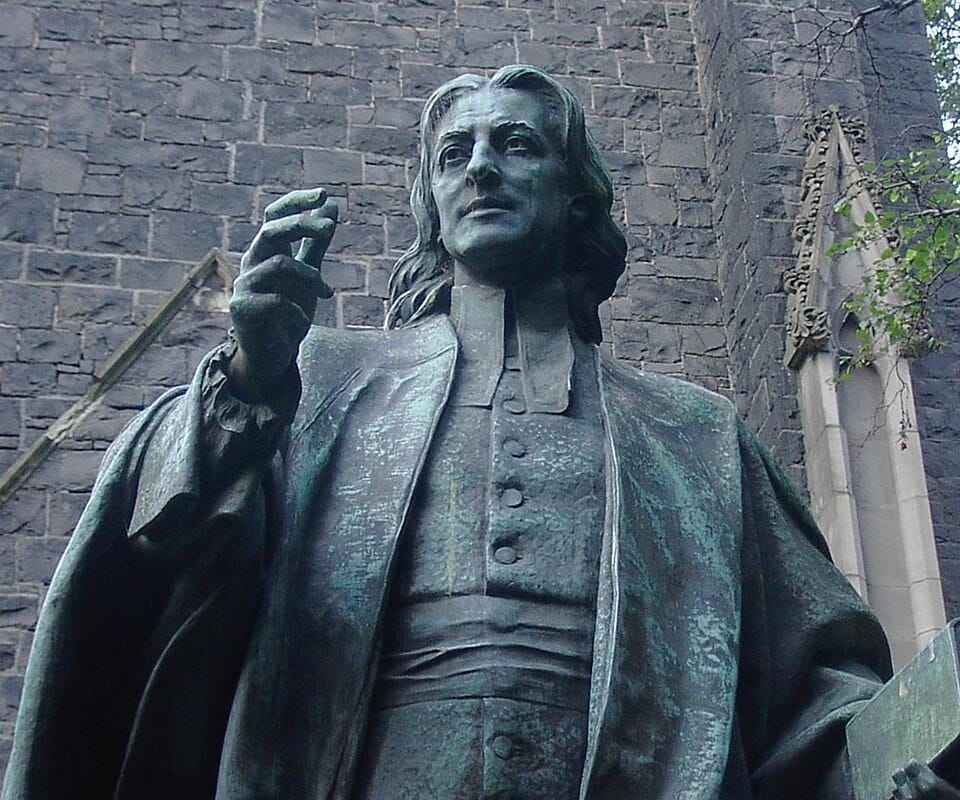agree to disagree

It is commonly claimed, especially in Methodist circles, that the phrase agree to disagree was coined by John Wesley, the founder of Methodism. The claimants point to the Oxford English Dictionary (OED), where indeed a 1775 letter by Wesley that uses the phrase is the first citation. (Although it is preceded in that dictionary entry by two uses of agree to differ, both in a theological context.) But this is a good example of how the OED, while it endeavors to include the first known use of a word or phrase, can often be antedated.
The Wesley quotation in the OED comes in 3 November 1775 letter:
No man is a good judge in his own cause. I believe I am tolerably impartial; but you are not (at least, was not some time since) with regard to King Charles I. Come and see what I say. If the worst comes, we can agree to disagree.
But this is not even the first use of the phrase by Wesley. He uses it in an 18 November 1770 funeral sermon for the Reverend George Whitefield:
In these [less essential doctrines] we many think and let think; we may “agree to disagree.” But mean time let us hold fast the essentials of the faith, which was once delivered to the saints; and which this champion of God so strongly insisted on, at all times, and in all places.
The use of quotation marks in the print edition (which may or may not have been indicated by a change in intonation in the oral delivery of the sermon) indicate that this was already a set phrase and was probably also a nod to an earlier use of the phrase by Whitefield twenty years earlier.
In a 29 June 1750 letter, Whitefield, a strong advocate for ecumenism, wrote:
If you and the rest of the preachers were to meet together more frequently, and tell each other your grievances, opinions, &c. it might be of service. This may be done in a very friendly way, and thereby many uneasinesses might be prevented. After all, those that will live in peace must agree to disagree in many things with their fellow-labourers, and not let little things part or disunite them.
Wesley and Whitefield frequently disagreed, yet Whitefield asked Wesley to preach his funeral sermon. So Wesley’s use of the phrase in that 1770 sermon was quite apt but hardly a coinage.
But Whitefield didn't coin it either. The earliest use of the phrase that I can find is in another funeral sermon preached some 175 years earlier in 1601 by William Harrison, Roman Catholic archpriest of England who argued against the existence of purgatory:
It would require a longer discourse, then now I can stand vpon: to descend into each of these particulars, beeing limited with the time, mine owne weakenes, and your wearines; yet if any man doubt, let him demurre with mee vpon a further tryall, and conference, when I shall (if God will) satisfie him to the full; that in all these seuerall points, they doe nothing else but agree to disagree: in the meane time I dare auouch as first I did, that purgatorie is not at all.
And in a secular and poetic context, William Wycherley used it in a 1704 poem about the marriage of two “ill natur’d,” Black enslaved persons who were to be emancipated upon their marriage:
In vain then, shou’d I give you Devil’s Joy,
Which both resolve, by Wedlock, to destroy,
Who, like Black Fiends, agree to disagree,
Each other’s Torment, out of Love to be,
More bound to be, with your selves, but more free.
While the poem is secular, unlike Harrison, the poet is arguing that this particular marriage will be a sort of purgatory.
Agree to disagree is a good example of how coinages credited to famous people are often incorrect. Celebrities get the credit because either their words are preserved while those of lesser mortals are forgotten, or simply because more people read them and they come to the attention of lexicographers (and in this case, preachers).
Sources:
Harrison, William. “The Soules Solace Against Sorrow” (1601). Deaths Aduantage Little Regarded, and The Soules Solace Against Sorrow. London: Felix Kyngston, 1602, 32–33. ProQuest: Early English Books Online (EEBO).
Oxford English Dictionary, third edition, September 2012, s.v. agree, v.
Wesley, John. Letter, 3 November 1775. The Letters of the Rev. John Wesley, vol. 6 of 8. John Telford, ed. London: Epworth Press, 1931, 186. Archive.org.
———. A Sermon on the Death of the Rev. Mr. George Whitefield, London: J. and W. Oliver, 1770, 23. Gale Primary Sources: Eighteenth Century Collections Online (ECCO).
Whitefield, George. Letter, 29 June 1750. In The Works of the Reverend George Whitefield, vol 2 of 6. London: Edward and Charles Dilly, 1751, 362. HathiTrust Digital Archive.
Wycherley, William. “An Epithalamium on the Marriage of Two Very Ill Natur’d Blacks, Who Were to Have Their Liberty, in Consideration of the Match.” Miscellany Poems. London: C. Brome, J. Taylor, and B. Tooke, 1704, 431–32. Gale Primary Sources: Eighteenth Century Collections Online (ECCO).
Photo credit: Adam Carr, 2005. Wikimedia Commons. Public domain photo.